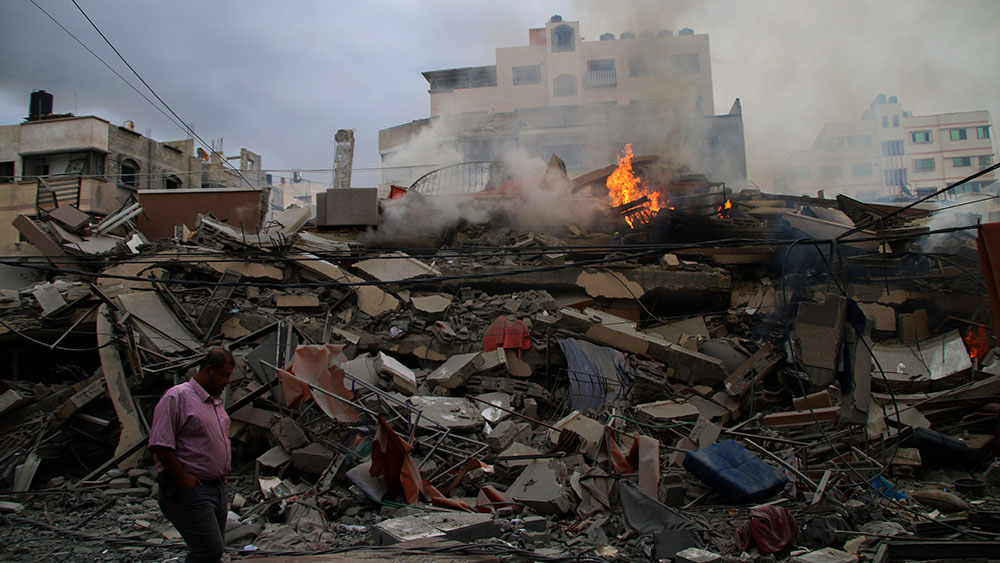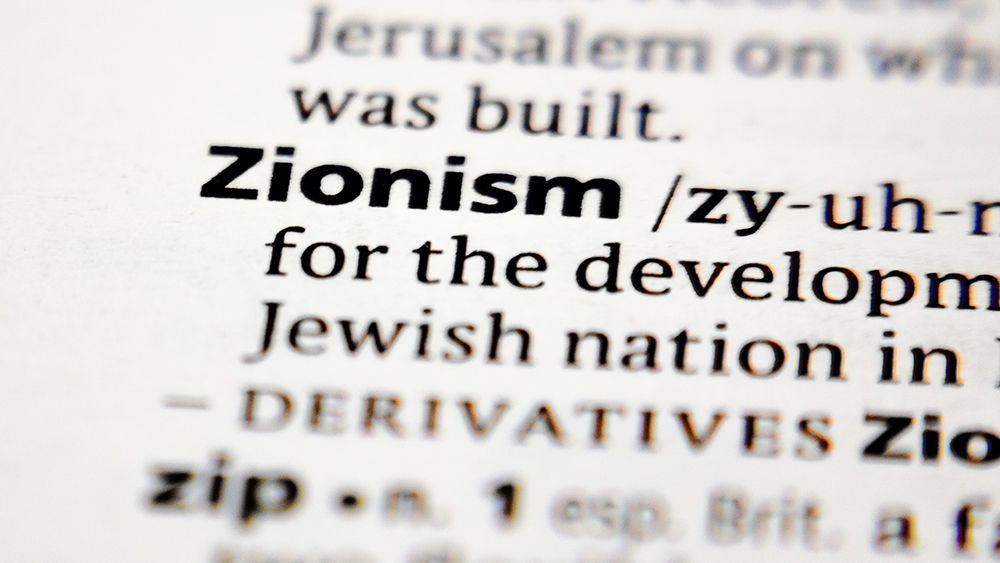 Parler
Parler Gab
Gab
- Gaza’s civilians endure relentless airstrikes, with women and children accounting for most of the 51,000-plus deaths since October 2023.
- Israel’s blockade has pushed 1 million children toward famine while the U.S. continues unchecked military support.
- Bombings target homes and hospitals, with no proof of Hamas links, violating international law.
- U.S. aid fuels Israel’s war machine, deepening civilian suffering and complicity in atrocities.
- The world’s inaction risks radicalizing survivors and perpetuating endless conflict.
Civilians bear the brunt of Israel’s war
In just 24 hours, Israeli airstrikes killed at least 50 Palestinians, many of them women and children, according to Gaza’s Health Ministry. One strike demolished a family home in Gaza City, killing four children and their parents. Witnesses described the horrific scene where neighbors had to "collect the flesh of the children—their limbs that were blown into the streets," as reported by Al Jazeera’s Hani Mahmoud. Another strike on a tent shelter in Nuseirat killed three children. These are not isolated tragedies but part of a relentless pattern where entire families are erased in seconds. The numbers speak volumes: Since Israel resumed its offensive in March, at least 1,978 Palestinians have been killed, including hundreds of children. Gaza’s Health Ministry puts the total death toll since October 2023 at over 51,000, with thousands more missing under the rubble. The U.N. warns that Israel’s total blockade cutting off food, fuel, and medicine has left 1 million children at risk of famine. Yet, Western governments, particularly the U.S., continue providing military aid to Israel with little scrutiny over how it is used. Israel claims its strikes target Hamas, but the evidence suggests otherwise. The bombing of a police station in Jabalia killed at least 10 Palestinians, with Israel insisting it was a "command and control center." Yet, no proof was offered, and local reports confirm civilian casualties. Similarly, an assault on Durra Children’s Hospital rendered the facility inoperable in a clear violation of international law. The U.S.’s response has only worsened the crisis. Promising Israel equipment while avoiding direct intervention signals tacit approval for the carnage. This is not just a failure of diplomacy; it’s complicity in mass suffering. When U.S. aid flows unconditionally, it fuels a war machine that repeatedly kills the very civilians Washington claims to protect.Will regional stability survive this carnage?
The long-term consequences of Gaza’s devastation cannot be ignored. Each child buried under rubble and each starving family becomes a symbol of injustice that radicalizes survivors and sows deeper hatred. Israel may claim its actions weaken Hamas, but in reality, they create the conditions for endless conflict. History shows that collective punishment breeds resistance. When innocent lives are treated as collateral, peace becomes impossible. The international community must ask: Does enabling Israel’s siege make the world safer? Or does it ensure another generation of violence?The human cost must matter
The suffering of Palestinian civilians should haunt the conscience of the world. No political objective justifies the slaughter of children, the bombing of hospitals, or the starvation of millions. If justice is selective and reserved only for certain nationalities, global institutions have failed. The time for hollow condemnations is over. Either the world demands an immediate ceasefire and holds Israel accountable for civilian deaths, or history will remember this moment as one where morality was abandoned for political expediency. Sources for this article include: News.Antiwar.com APNews.com BBC.com AlJazeera.comBy Lance D Johnson // Share
Nova festival founder exposed as key player in Israeli intelligence’s Gaza genocide campaign
By Lance D Johnson // Share
U.K. drops plans for large-scale TROOP DEPLOYMENT to Ukraine
By Ramon Tomey // Share
Millions without power as Spain and Portugal face unprecedented power outage
By Cassie B. // Share
Illegal immigrant arrested after stealing DHS Secretary’s purse in D.C. dining theft
By Cassie B. // Share
Governments continue to obscure COVID-19 vaccine data amid rising concerns over excess deaths
By patricklewis // Share
Tech giant Microsoft backs EXTINCTION with its support of carbon capture programs
By ramontomeydw // Share
Germany to resume arms exports to Israel despite repeated ceasefire violations
By isabelle // Share










